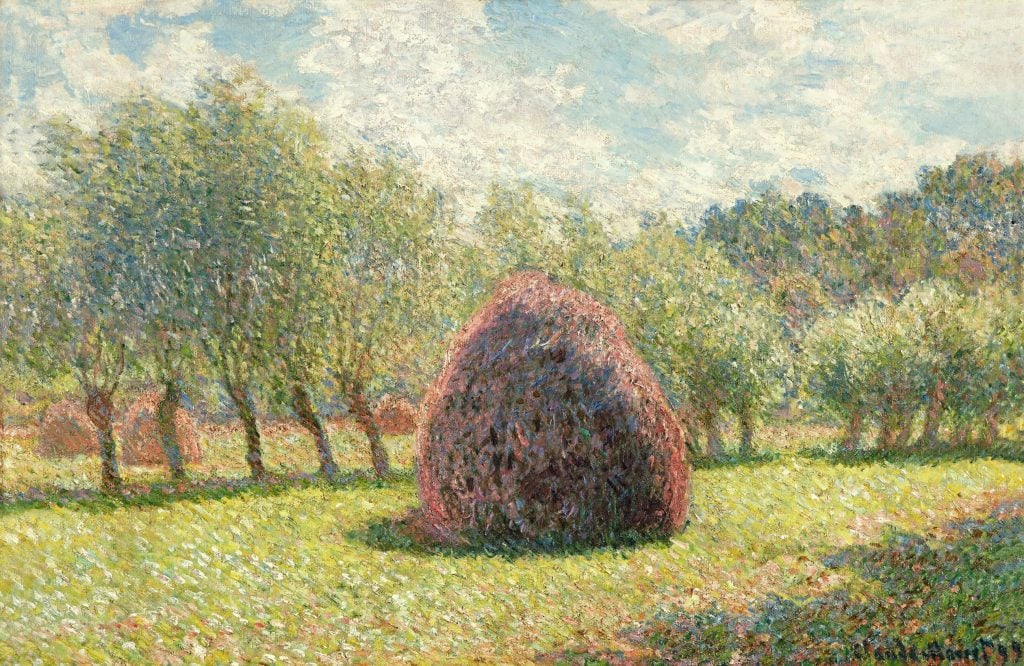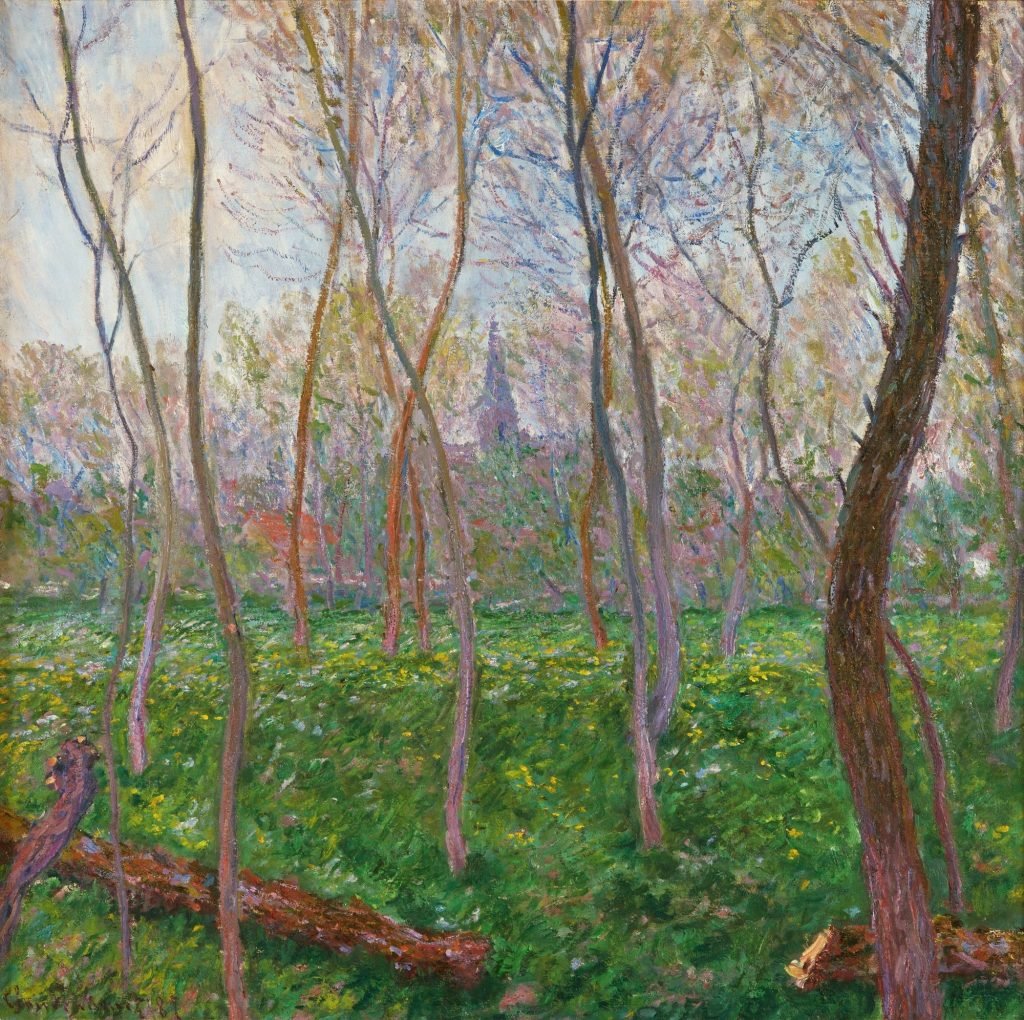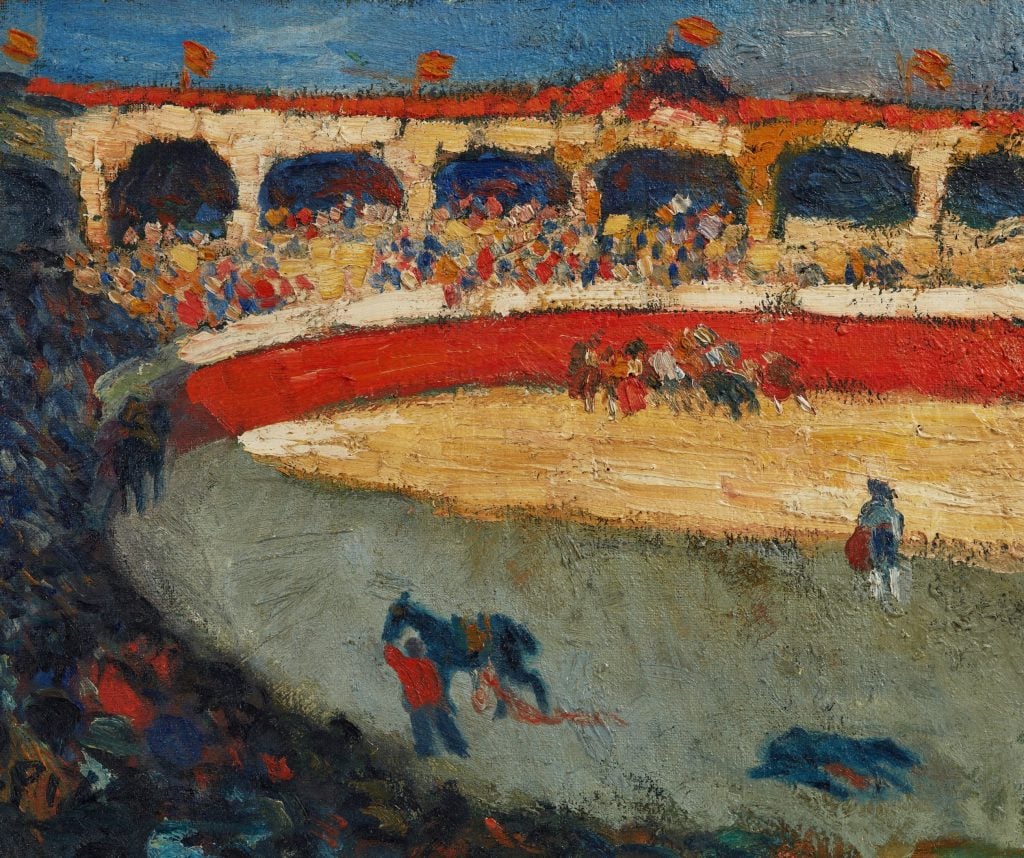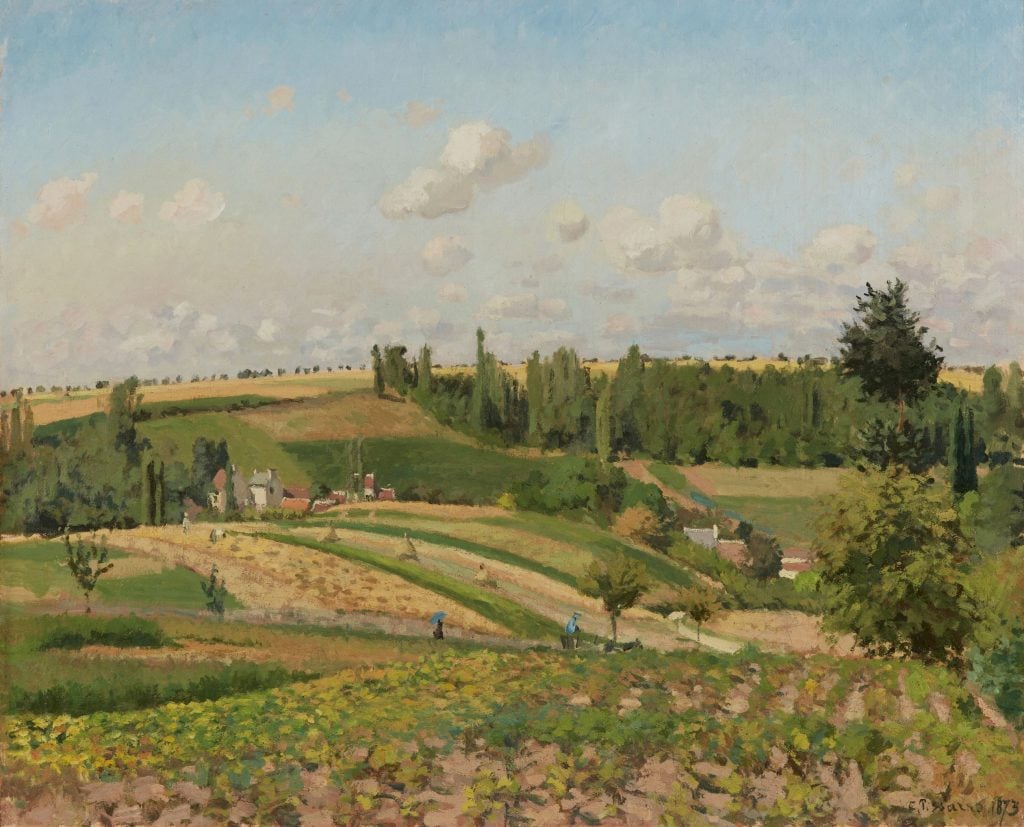Auctions
A Monet Haystack Painting Could Fetch $30 Million at Auction
The series is among the Impressionist’s most beloved subject.

A Claude Monet canvas from his haystack series, one of his most recognizable, will come to market next month when Sotheby’s New York offers Meules à Giverny (1893), which is estimated to go for more than $30 million at the house’s Modern art sale on May 15.
“With his haystacks, the revolutionary ideas and techniques that initially defined Impressionism are expertly employed during a moment of significant transformation for Monet,” said Allegra Bettini, head of the Modern evening auction in New York.
Sotheby’s has a record of achievements with Monet at auction, having sold his painting Meules (1890) for $110.7 million in 2019 in New York. That sale established a record for an Impressionist work at auction, as well as a high water mark for the artist.
The sale coincides with the 150th anniversary of the first Impressionist exhibition, which opened in Paris on April 15, 1874. Monet’s painting Impression, Sunrise (1872) came to be the new movement’s namesake when critic Louis Leroy used it in a satirical review in the Paris newspaper Le Charivari.

Claude Monet, Bennecourt (1887). Courtesy Sotheby’s.
“As one of his most beloved and important series, the haystacks embody Monet’s meticulous approach to painting,” said Sharon Kim, Sotheby’s deputy chairman for Impressionist and Modern art.
“In revisiting scenes at different times of day and seasons, he carefully detailed the subtle changes in the landscape caused by the varying light and atmosphere to create a subtle and harmonious vision across his works, showcasing his continued experimentation with brushwork and looking ahead to his further evolution with the Nymphéas that would usher in an entire new era of modern art.”
The painting has been in the collection of the same American family for decades. Landscape painter Dwight Blaney purchased it in 1895 and lent it to the Museum of Fine Arts, Boston; he would also later lend it to Boston’s Copley Society.

Pablo Picasso, Courses de taureaux (1901). Courtesy Sotheby’s.
Monet’s work was first exhibited on these shores in 1866, when New York’s Derby Gallery included one of his pieces in a show of French art, and would find a ready following among patrons such as Chicago collector Bertha Palmer, who acquired a number of his paintings of haystacks.
Several other works from the same period come from the same collection. Monet’s Bennecourt (1887) is estimated to sell for as much as $8 million. American painter John Singer Sargent bought it the year it was painted and it has been off the market since 1986.
Bearing a $7 million high estimate is Pablo Picasso’s Courses de taureaux (1901), depicting a bullfight, a highly personal subject for the artist, who often attended these events with his father and would later paint himself in the guise of the animal. The painting last came to market in 2003.

Camille Pissarro, Paysage au Pâtis, Pointoise, la moisson (1983). Courtesy Sotheby’s.
Camille Pissarro’s Paysage au Pâtis, Pointoise, la moisson (1983) is estimated at up to $3.5 million. It comes from a series that earned the painter the sobriquet “the father of Impressionism.”
Christie’s will also have a pricey Monet canvas this spring; the house recently announced that it will offer Moulin de Limetz (1888) from the collection of the Nelson-Atkins Museum of Art in Kansas City. That work is expected to sell for between $18 million to $25 million.





